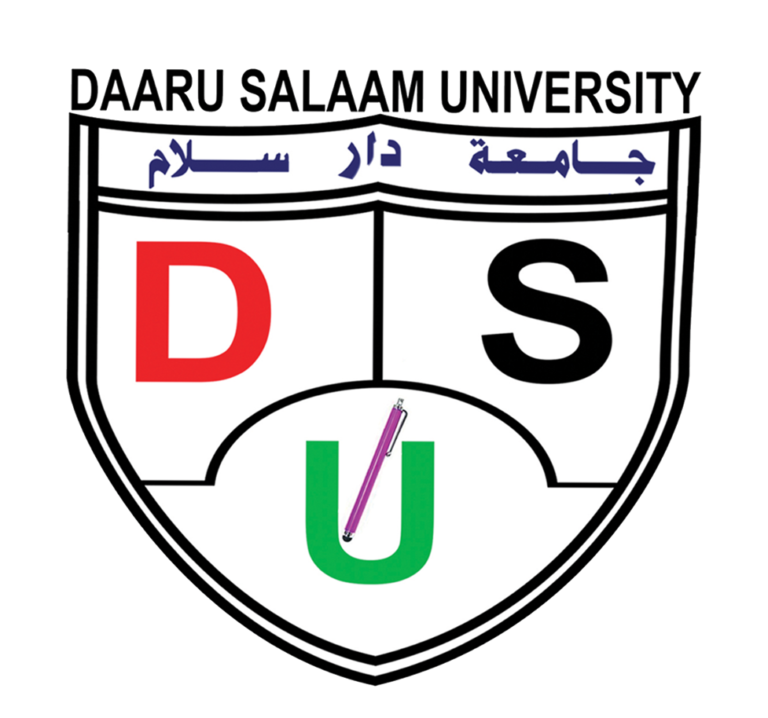Faculty of Economics & Management Sciences
Departments

Department of Business Administration

Department of Economics

Department of Islamic Banking & Finance

Department of Logistics & Procurement

Mr. Mohamed Abdullahi Ali
Dean, Faculty of Economics & Management Sciences
Dean's Message
Welcome to the vibrant community of DSU’s Faculty of Economics and Management Sciences.
As Dean, it’s a privilege to spearhead our efforts in fostering education, research, and practical skills in economics and management. Our curriculum is designed to equip students with the tools they need to thrive in today’s ever-changing economic landscape.
Join us in our mission to collaborate, innovate, and shape the future of economics and management. Your decision to choose DSU is greatly appreciated, and I look forward to embarking on this exciting journey together.
Program Description
DEPARTMENT OF BUSINESS ADMINISTRATION
Overview
The Department of Business Administration at Daaru Salaam University is dedicated to nurturing future leaders and innovators in the business world. The program combines theoretical knowledge with practical application, preparing students to excel in diverse industries and entrepreneurial ventures.
Program Objectives
- To develop a strong foundation in business principles and practices.
- To foster critical thinking, leadership, and ethical decision-making skills.
- To equip students with the tools to analyze and solve complex business problems.
- To prepare graduates for leadership roles in global and local business environments.
Program Structure
The program is structured into core courses, electives, and practical experiences. Students complete foundational courses in management, marketing, finance, and operations, followed by specialized electives in areas such as entrepreneurship, international business, and strategic management. The program culminates in a capstone project or internship.
Key Areas of Study
- Strategic Management
- Marketing and Consumer Behavior
- Financial Accounting and Analysis
- Organizational Behavior and Leadership
- Operations and Supply Chain Management
- Business Ethics and Corporate Social Responsibility
Learning Outcomes
- Demonstrate a comprehensive understanding of business concepts and practices.
- Apply analytical and problem-solving skills to real-world business challenges.
- Exhibit effective communication and teamwork abilities.
- Develop innovative and ethical solutions to business problems.
Career Opportunities
- Business Consultant
- Marketing Manager
- Financial Analyst
- Entrepreneur
- Operations Manager
- Human Resources Specialist
Facilities and Resources
- Modern classrooms and lecture halls equipped with the latest technology.
- Access to a business simulation lab for hands-on learning.
- A well-stocked library with resources on business and management.
- Networking opportunities with industry professionals through seminars and workshops.
Admission Requirements
- A high school diploma or equivalent with a strong academic record.
- Proficiency in English (verified through tests or interviews).
- Submission of a personal statement and letters of recommendation.
- Successful completion of an entrance examination or interview.
DEPARTMENT OF ECONOMICS
Overview
The Department of Economics provides students with a deep understanding of economic theories, policies, and practices. The program emphasizes analytical thinking, data interpretation, and policy formulation, preparing graduates to address global and local economic challenges.
Program Objectives
- To provide a solid foundation in economic theory and practice.
- To develop analytical and quantitative skills for economic analysis.
- To prepare students for careers in policymaking, research, and consulting.
- To foster an understanding of sustainable and inclusive economic development.
Program Structure
The program includes core courses in microeconomics, macroeconomics, and econometrics, along with electives in specialized areas such as development economics, international trade, and environmental economics. Students also engage in research projects and internships.
Key Areas of Study
- Microeconomics and Macroeconomics
- Econometrics and Data Analysis
- Development Economics
- International Trade and Finance
- Public Finance and Policy
- Environmental and Resource Economics
Learning Outcomes
- Analyze economic issues using theoretical and quantitative tools.
- Interpret economic data and forecast trends.
- Design and evaluate economic policies.
- Communicate economic concepts effectively to diverse audiences.
Career Opportunities
- Economic Analyst
- Policy Advisor
- Financial Consultant
- Research Economist
- International Development Specialist
- Academic Researcher
Facilities and Resources
- Access to economic databases and software for data analysis.
- A dedicated economics research center.
- Regular seminars and guest lectures by renowned economists.
- Collaboration opportunities with government and private sector organizations.
Admission Requirements
- A high school diploma with a strong background in mathematics and social sciences.
- Proficiency in English.
- Submission of a personal statement outlining interest in economics.
- Successful completion of an entrance examination or interview.
DEPARTMENT OF ISLAMIC BANKING & FINANCE
Overview
The Department of Islamic Banking & Finance offers a unique program that combines conventional financial principles with Sharia-compliant practices. Students gain a thorough understanding of Islamic financial systems and their application in modern economies.
Program Objectives
- To provide a comprehensive understanding of Islamic finance principles.
- To develop skills in Sharia-compliant financial products and services.
- To prepare students for careers in Islamic banking, finance, and related fields.
- To promote ethical and socially responsible financial practices.
Program Structure
The program includes core courses in Islamic economics, banking, and finance, along with electives in areas such as takaful, sukuk, and Islamic wealth management. Students also complete a capstone project or internship.
Key Areas of Study
- Islamic Economics and Commercial Law
- Islamic Banking and Finance
- Sukuk (Islamic Bonds) and Takaful (Islamic Insurance)
- Risk Management in Islamic Finance
- Islamic Accounting and Auditing
- Ethical Investment and Wealth Management
Learning Outcomes
- Demonstrate a deep understanding of Islamic finance principles.
- Design and manage Sharia-compliant financial products.
- Analyze and mitigate risks in Islamic financial systems.
- Apply ethical principles to financial decision-making.
Career Opportunities
- Islamic Banking Officer
- Sharia Compliance Advisor
- Financial Analyst in Islamic Finance
- Takaful Specialist
- Islamic Wealth Manager
- Academic Researcher in Islamic Economics
Facilities and Resources
- Access to a dedicated Islamic finance research center.
- Collaboration with Islamic financial institutions for internships and projects.
- A library with extensive resources on Islamic finance and economics.
- Regular workshops and seminars by industry experts.
Admission Requirements
- A high school diploma or equivalent.
- Proficiency in English and Arabic (preferred but not mandatory).
- Submission of a personal statement and letters of recommendation.
- Successful completion of an entrance examination or interview.
DEPARTMENT OF LOGISTICS & PROCUREMENT
Overview
The Department of Logistics & Procurement prepares students to excel in the fast-paced world of supply chain management. The program focuses on optimizing operations, reducing costs, and improving efficiency in logistics and procurement processes.
Program Objectives
- To provide a solid foundation in logistics and procurement principles.
- To develop skills in supply chain optimization and management.
- To prepare students for careers in logistics, procurement, and supply chain management.
- To foster an understanding of sustainable and technology-driven logistics practices.
Program Structure
The program includes core courses in logistics, procurement, and supply chain management, along with electives in areas such as global logistics, sustainable supply chains, and technology in logistics. Students also complete a capstone project or internship.
Key Areas of Study
- Inventory and Warehouse Management
- Transportation and Distribution
- Procurement and Supplier Relationship Management
- Supply Chain Analytics and Optimization
- Global Logistics and Trade Compliance
- Sustainable Supply Chain Practices
Learning Outcomes
- Design and manage efficient logistics and procurement systems.
- Analyze and optimize supply chain operations.
- Apply technology to improve logistics processes.
- Develop sustainable and ethical supply chain solutions.
Career Opportunities
- Logistics Manager
- Procurement Specialist
- Supply Chain Analyst
- Operations Manager
- Inventory Control Manager
- Consultant in Logistics and Supply Chain
Facilities and Resources
- Access to a logistics simulation lab for hands-on learning.
- Collaboration with industry partners for internships and projects.
- A library with resources on logistics, procurement, and supply chain management.
- Regular industry visits and guest lectures by logistics experts.
Admission Requirements
- A high school diploma or equivalent.
- Proficiency in English.
- Submission of a personal statement and letters of recommendation.
- Successful completion of an entrance examination or interview.
